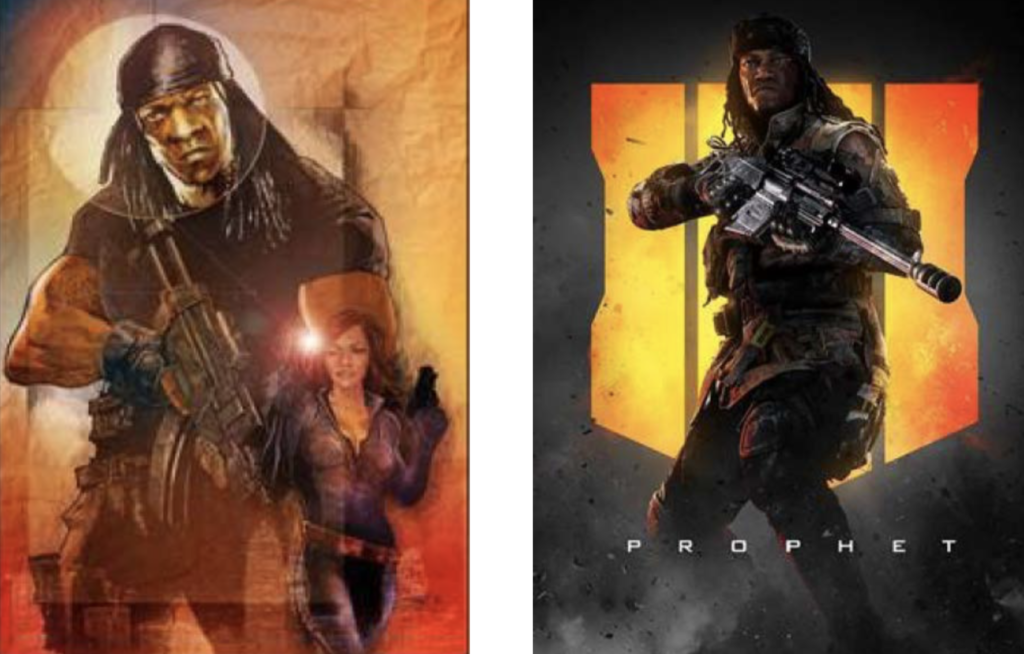A federal judge in East Texas is allowing a Houston wrestler’s copyright infringement lawsuit against the publisher of the “Call of Duty” video game to move forward after declining Wednesday to dismiss it.
In his ruling, U.S. District Judge Robert Schroeder adopted an earlier decision made by U.S. Magistrate Judge Roy Payne to both keep the lawsuit alive and keep it in the Eastern District of Texas.
The defendants — Santa Monica, California-based Activision Publishing, its publisher and New York eSports giant Major League Gaming — asked the court last spring to dismiss the lawsuit for improper venue or, alternatively, transfer the case to either the Central District of California (where Activision primarily conducts business) or the Southern District of Texas (where the plaintiff lives).
The plaintiff, wrestling professional Booker T. Huffman, filed the lawsuit last February, alleging that the “Prophet” character in the latest “Call of Duty” game is too similar to “G.I. Bro,” a comic book character Huffman created based on himself that he copyrighted in 2015.
At the time Huffman filed the lawsuit, he argued the Eastern District was the proper venue because the defendants do business there.
In November, Magistrate Judge Payne rejected the defense’s arguments, including their claim that they do not “reside” and “can not be found” in the Eastern District of Texas. The defendants had argued that the current interpretation of “may be found,” does not survive post-TC Heartland v. Kraft Foods Grp. Brands, the landmark 2017 U.S. Supreme Court decision that is causing fewer intellectual property lawsuits to be filed in the Eastern District.
On Wednesday, Judge Schroeder agreed with Payne, and ruled that a “side-by-side comparison” of “G.I. Bro” and “Prophet” are “sufficiently similar to plausibly allege striking similarity,” thus the lawsuit should move forward.

“They both have the same muscular build; same skin tone; nearly identical facial features and facial expression; dreads topped with a cap; black, army style clothing; ammo holders strapped to their lower body; and assault rifles, held in a similar fashion with the end of the gun positioned near the character’s right shoulder,” Schroeder wrote. “Plaintiff has adequately pleaded copying.”
Huffman is being represented by Dallas lawyers Michah Dortch and Chris Lindstrom of the Potts firm and Houston attorney Patrick Zummo.
“Through his internationally acclaimed professional career, the creation of his ‘G.I. Bro’ character, and filings with the regulatory agencies, Mr. Huffman has firmly established his legal property rights,” Dortch said. “Two judges have ruled that Mr. Huffman’s property is protectable and we look forward to the day that a jury holds those who have infringed his rights accountable for their actions.”
Counsel for the defendants did not immediately respond to a request for comment.
The defendants’ legal team includes Marshall attorneys Melissa Richards Smith and Bobby Lamb of Gillam & Smith and San Francisco lawyers Matthew Samuels, Mark Lemley, Joseph Gratz and Aaron Benmark of Durie Tangri.
